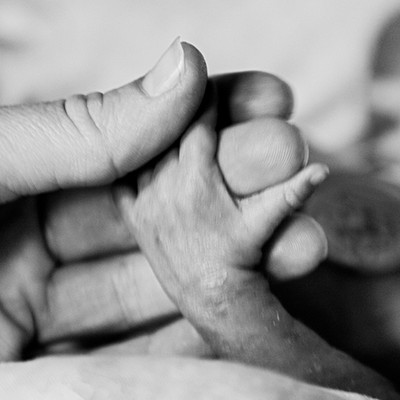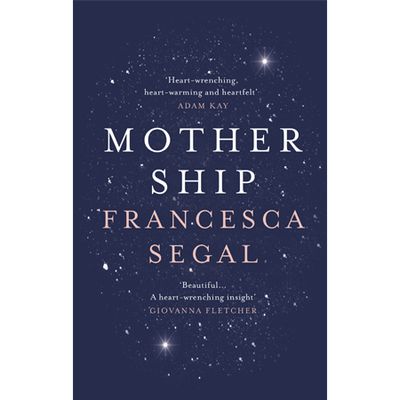
What No One Tells You About Premature Birth
An easy pregnancy doesn’t make a premature birth unlikely. I felt strong and full of beans, and full of what turned out to be a false confidence. Then, at 29 weeks, I suddenly began to haemorrhage, out of the blue. It took some time before the full implications of their early birth penetrated – looking back I know now I was in shock for a really long time, but that ignorance and denial is actually what carried me through those early days.
You won’t be able to hold your baby straight away. I didn’t meet my babies until the day after their birth. I think measuring the impact of that is only something I can do now with the benefit of hindsight. At the time I was in shock, and had no previous experience of a so-called "normal" birth with which to compare it. That said, I’m pleased to say I don't think it impacted my bond or connection with them. What it did affect was the sense of claim I felt to be their mother.
Basic tasks to take care of your babies feel extra hard. Most of my nurses were pretty incredible, with several taking time from their unimaginably stressful working day to educate us in how to care for our babies as far as we could. Just learning to change the nappy of a very premature baby is a challenge – mainly because of their size. When you get it right, it feels like a triumph.
Premature babies need a lot of medical intervention. If babies are born extremely early, they tend to have stiff, immature lungs, so they need to be on oxygen support to help them breathe, as well as naso-gastric tubes and central (intravenous) lines to nourish them. It’s the incubators which keep them warm as they are unable to maintain their own temperature, and they also need to be on a relatively sterile neonatal intensive care ward, because their immune systems are so vulnerable.
There are places in the hospital you never knew existed. Before I went through this experience, I’d never even heard of a ‘milking shed’. But it’s no exaggeration to say that this was the place which saved me. Those other women were the only people to whom I could speak to in the shorthand language used on the ward, and who fully understood the daily rollercoaster, the frustration, the boredom and the terror. They were my comrades. They still are.
Hope will often feel at an all-time low. I think my lowest point was when the girls were in two different hospitals. I already felt as if I was trying to achieve several impossible things. Then, all of a sudden, I quite literally had to be in two places at once. The girls both needed expressed breast milk, so I was ricocheting between one breast pump and another, back and forth on the train, not very long after a c-section. In short, it wasn’t a good time.
It feels strange to be told you can take your babies home. In fact, I’m not sure any of us quite believed it when were told we could just leave with them. It felt like they had belonged to the hospital for so long and we were shoplifting or something! Ever since they’ve been at home, we’ve felt incredibly lucky. They're doing beautifully: just funny, naughty, charming little four-year-olds.
Women in similar circumstances need to rely on each other. Reach out to the other women you see around you. Somewhere else in that ward is another woman who is lonely and frightened, and will want to talk. Not everyone – because of course we all cope with trauma in different ways. But very often, even the person who seems the most unapproachable might prove to be your lifeline.
Looking back on the experience could shed new light. I started by writing a vague and messy diary during the time that the girls were in hospital. But it was very much just for myself. It was much later on that I thought, perhaps this is worth re-examining if it helps someone else going through something similar. When I returned to it, I saw it as a period of such acutely experienced sisterhood and the forming of such treasured friendships – overall it came across as quite uplifting. Ultimately, it felt like a story that might resonate with many people, not just women who had been in my position.
It’s impossible to get everything right along the way. If the same thing happened to me again, I would assert myself as a decision-maker on their behalf much sooner, and I would been less anxious about asking questions when I didn't understand things. We’re often so grateful to the incredible medical staff working so tirelessly care for our children that it can be very hard to stop someone to say, excuse me, can you explain that for me? But it is both our right as a parent and also helpful in the long term. The better educated parents are, the sooner they can take over some of the smaller care duties for their babies and spare the nurses some of the workload. We can also work on connecting with their own babies more quickly. Everybody wins.
Premature birth is still a taboo subject. I think this is true across society as a whole, and there’s much more to be done to raise awareness and prepare women for the many ways in which pregnancy and birth can go wrong. People fear bringing on the evil eye by speaking of these possibilities – as if by speaking about them they will somehow make them happen – but 60,000 babies are born prematurely in the UK every year. It’s so important to discuss prematurity and educate people about its causes and consequences.
DISCLAIMER: We endeavour to always credit the correct original source of every image we use. If you think a credit may be incorrect, please contact us at info@sheerluxe.com.



